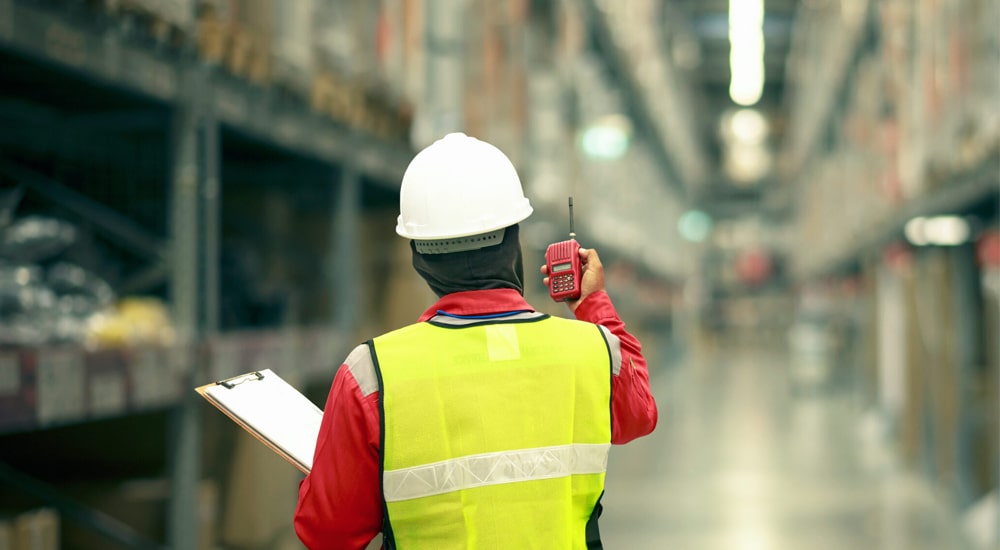
In today’s fast-paced world, the logistics industry is undergoing a transformative shift driven by artificial intelligence (AI) and the Internet of Things (IoT). These technologies are not only reshaping traditional logistics practices but are also setting the stage for a smarter, more efficient, and more responsive supply chain ecosystem. This article explores how AI and IoT are key to creating a smarter future for logistics and highlights the benefits they bring to businesses across the industry.
1. Enhanced Real-Time Tracking and Visibility
IoT enables the tracking of goods in real-time, providing businesses with precise, up-to-the-minute data on the location and condition of shipments. IoT sensors monitor various metrics such as temperature, humidity, and shock levels, which is crucial for sensitive goods like pharmaceuticals or perishables. Combined with AI, logistics companies can analyze this data to detect patterns and predict potential disruptions, allowing for proactive solutions that minimize delays and losses.
2. Predictive Maintenance and Reduced Downtime
Logistics fleets and warehousing equipment endure heavy wear and tear. With IoT sensors embedded in vehicles and machinery, logistics companies can perform predictive maintenance, anticipating potential issues before they occur. AI algorithms analyze this sensor data to forecast maintenance needs, reducing unplanned downtime and extending equipment lifespan. This proactive approach cuts costs and ensures that the logistics operation runs smoothly without interruptions.
3. Optimized Route Planning and Fuel Efficiency
AI-powered route optimization tools use historical data, real-time traffic conditions, and weather forecasts to identify the most efficient routes. By reducing delivery times and fuel consumption, companies save money and decrease their environmental footprint. This real-time adaptability is invaluable in reducing operational costs and meeting the growing demand for timely, eco-friendly deliveries.
4. Improved Inventory Management with Smart Warehousing
AI and IoT are revolutionizing inventory management in warehouses. IoT-enabled smart shelves and autonomous robots work together to monitor inventory levels and retrieve products accurately and efficiently. AI algorithms then analyze demand trends and optimize stock levels to ensure products are available when needed while avoiding overstocking. This integration of AI and IoT minimizes human error, reduces operational costs, and enhances warehouse productivity.
5. Enhanced Customer Experience and Transparency
With AI and IoT, customers gain greater transparency over their shipments. From tracking packages in real-time to receiving proactive alerts on potential delays, these technologies empower customers with more information and control. AI-driven chatbots further enhance customer service by answering common queries, providing shipping updates, and offering personalized support 24/7, resulting in improved customer satisfaction and loyalty.
6. Data-Driven Decision Making and Strategic Insights
Data from IoT devices, when analyzed by AI algorithms, provides invaluable insights into operations, customer behaviors, and market trends. Logistics companies can leverage this data to make strategic decisions, optimize resource allocation, and anticipate future challenges. This data-driven approach enables businesses to remain competitive, agile, and well-prepared for changing market conditions.
7. Enhanced Safety and Security in Supply Chain
IoT devices can monitor the security and safety of cargo throughout its journey. With AI, these systems can automatically detect potential security breaches or hazards and alert relevant teams in real-time. Enhanced security measures improve the safety of goods, reduce the risk of theft, and protect the overall integrity of the supply chain.
Conclusion
The integration of AI and IoT in logistics is setting a new standard for efficiency, transparency, and resilience in the industry. By embracing these technologies, logistics companies are better equipped to navigate challenges, optimize operations, and meet evolving customer expectations. As AI and IoT continue to advance, they will play an increasingly essential role in shaping the future of smart logistics, offering unprecedented opportunities for growth and innovation.
Incorporate AI and IoT into your logistics strategy today and stay ahead in the race towards a smarter, more efficient supply chain.





